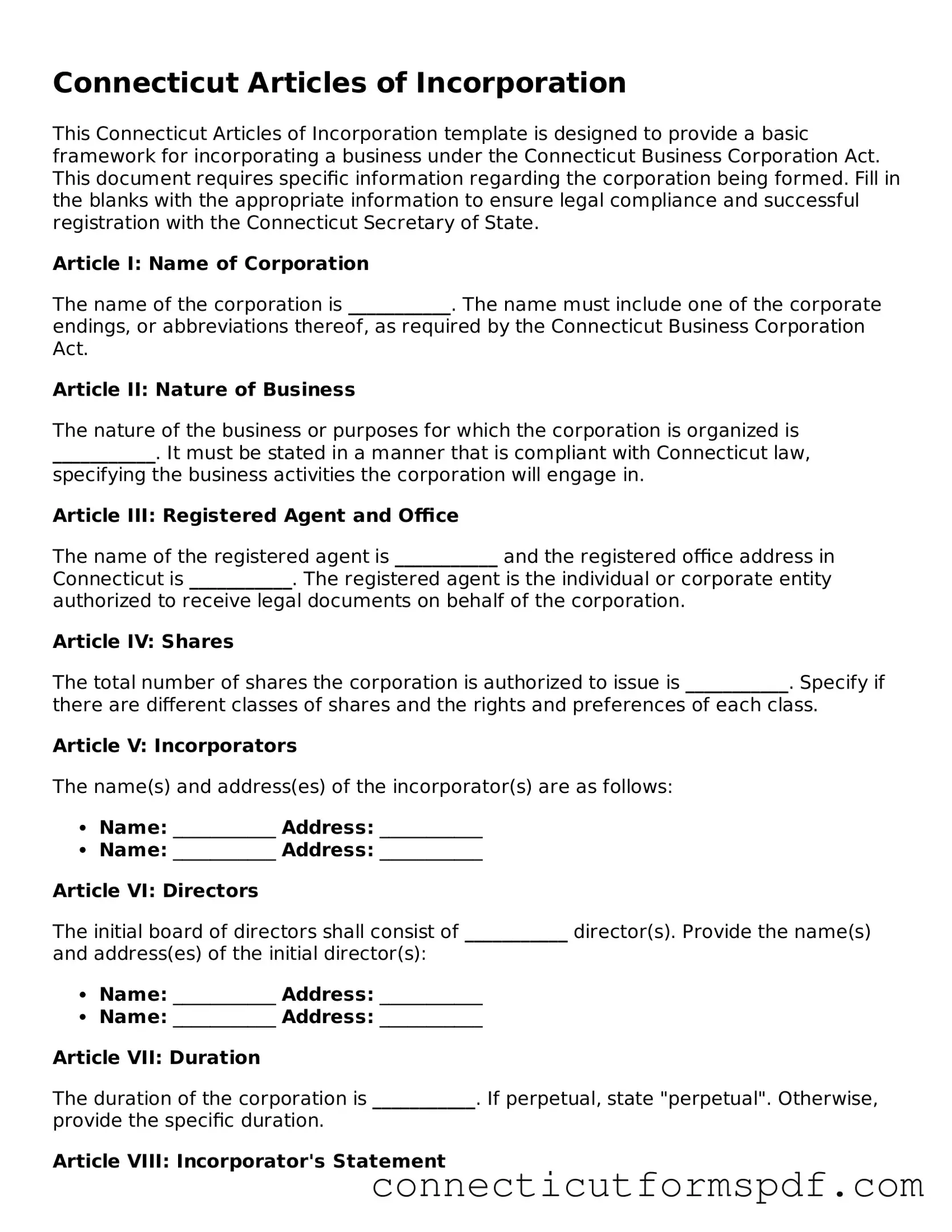Connecticut Articles of Incorporation
This Connecticut Articles of Incorporation template is designed to provide a basic framework for incorporating a business under the Connecticut Business Corporation Act. This document requires specific information regarding the corporation being formed. Fill in the blanks with the appropriate information to ensure legal compliance and successful registration with the Connecticut Secretary of State.
Article I: Name of Corporation
The name of the corporation is ___________. The name must include one of the corporate endings, or abbreviations thereof, as required by the Connecticut Business Corporation Act.
Article II: Nature of Business
The nature of the business or purposes for which the corporation is organized is ___________. It must be stated in a manner that is compliant with Connecticut law, specifying the business activities the corporation will engage in.
Article III: Registered Agent and Office
The name of the registered agent is ___________ and the registered office address in Connecticut is ___________. The registered agent is the individual or corporate entity authorized to receive legal documents on behalf of the corporation.
Article IV: Shares
The total number of shares the corporation is authorized to issue is ___________. Specify if there are different classes of shares and the rights and preferences of each class.
Article V: Incorporators
The name(s) and address(es) of the incorporator(s) are as follows:
- Name: ___________ Address: ___________
- Name: ___________ Address: ___________
Article VI: Directors
The initial board of directors shall consist of ___________ director(s). Provide the name(s) and address(es) of the initial director(s):
- Name: ___________ Address: ___________
- Name: ___________ Address: ___________
Article VII: Duration
The duration of the corporation is ___________. If perpetual, state "perpetual". Otherwise, provide the specific duration.
Article VIII: Incorporator's Statement
I, ___________, being the incorporator(s) of the corporation herein named, do hereby certify that the information provided in these Articles of Incorporation is true and correct, and that I am authorized to sign and submit this document to the Connecticut Secretary of State for filing.
IN WITNESS WHEREOF, the undersigned incorporator(s) have executed these Articles of Incorporation on this ___________ day of ___________, 20____.
________________________________
Signature of Incorporator
________________________________ Date

